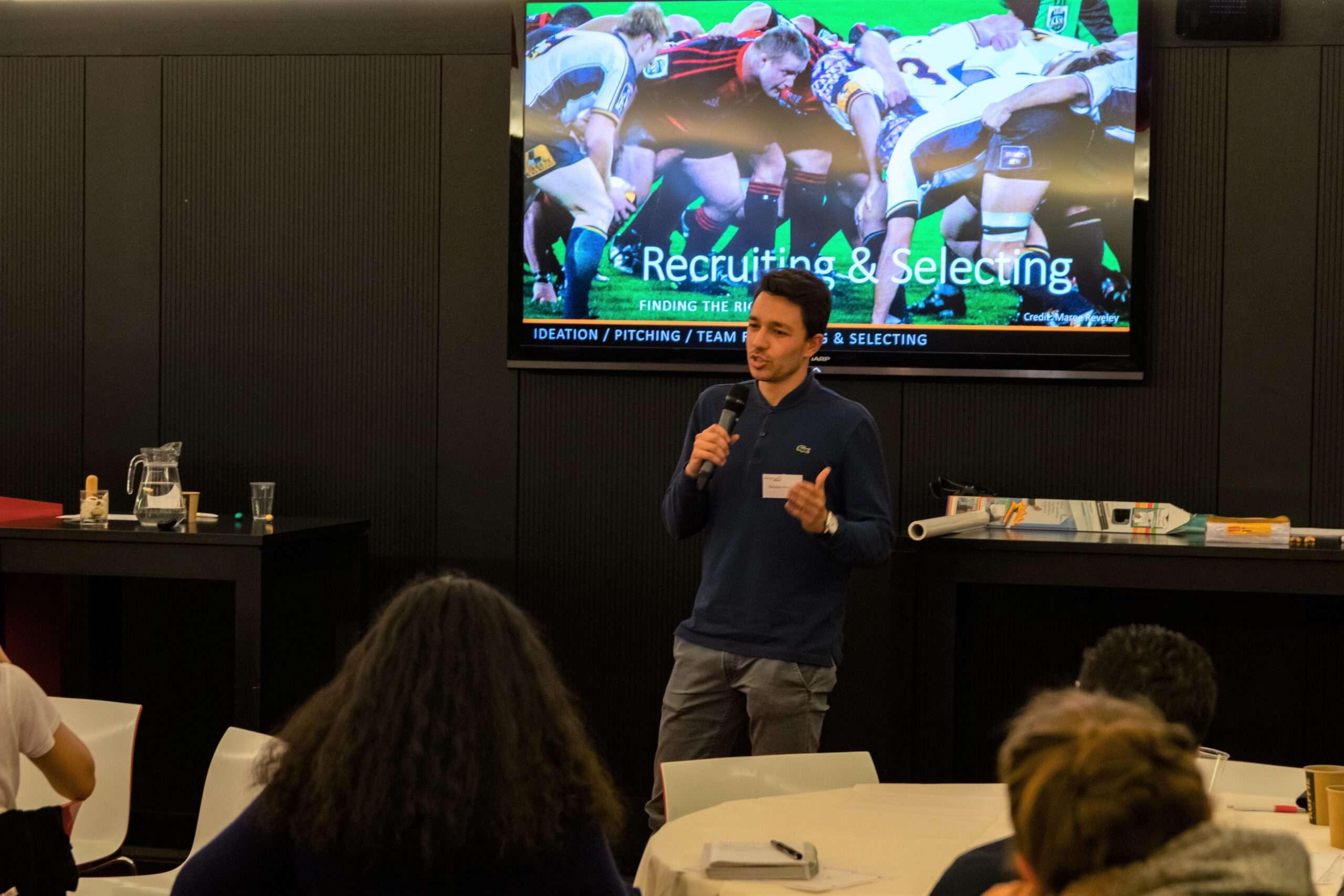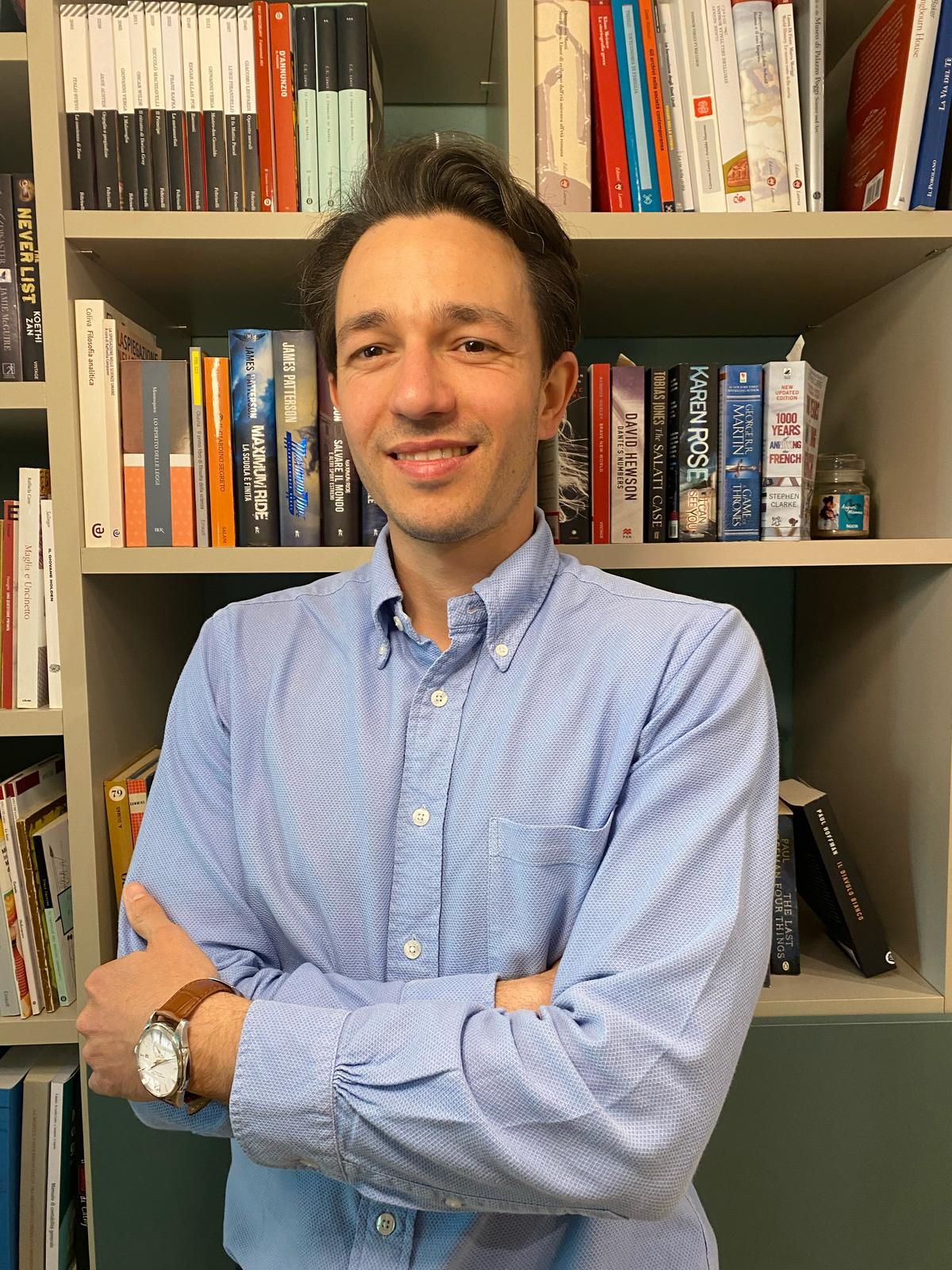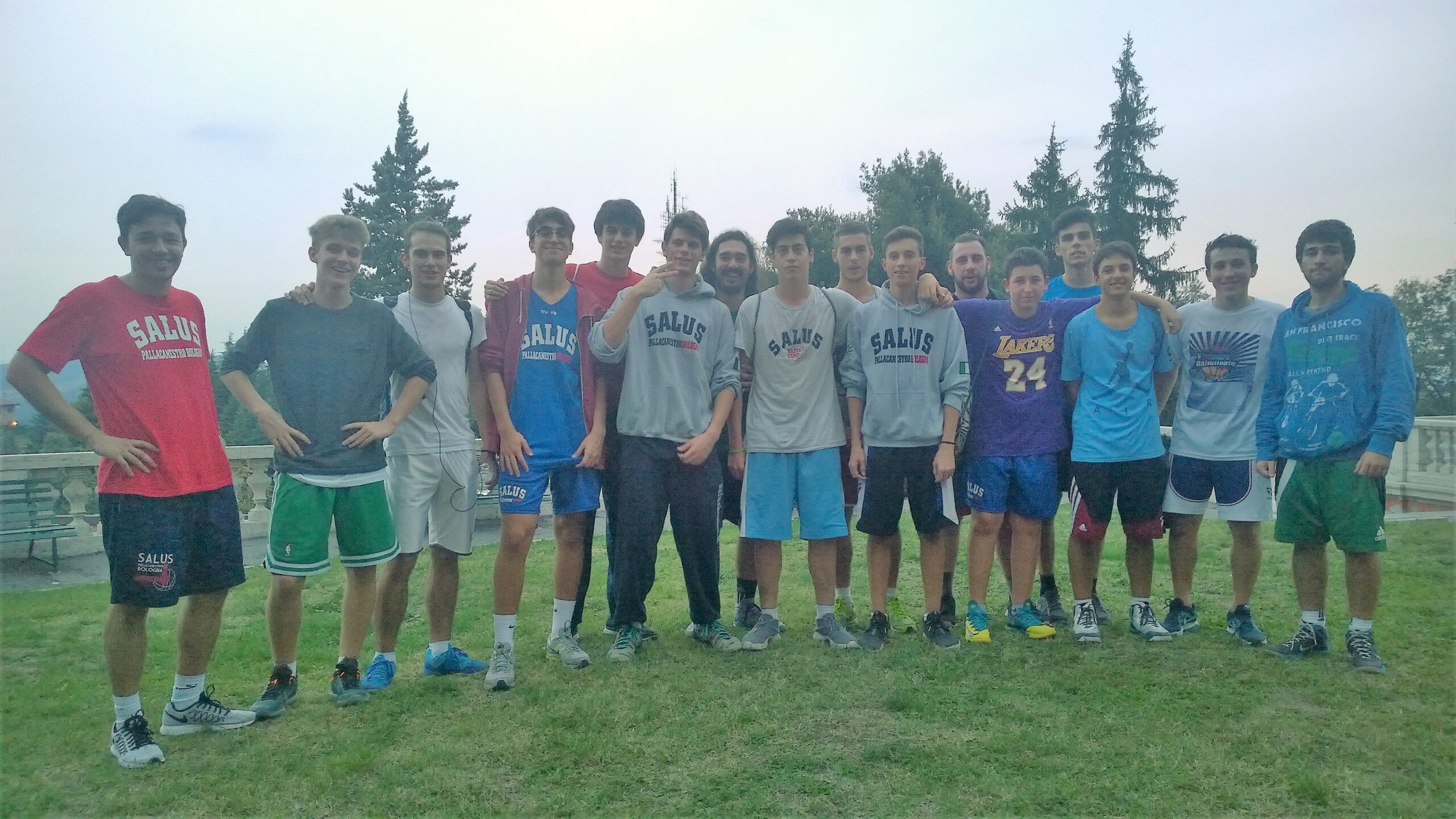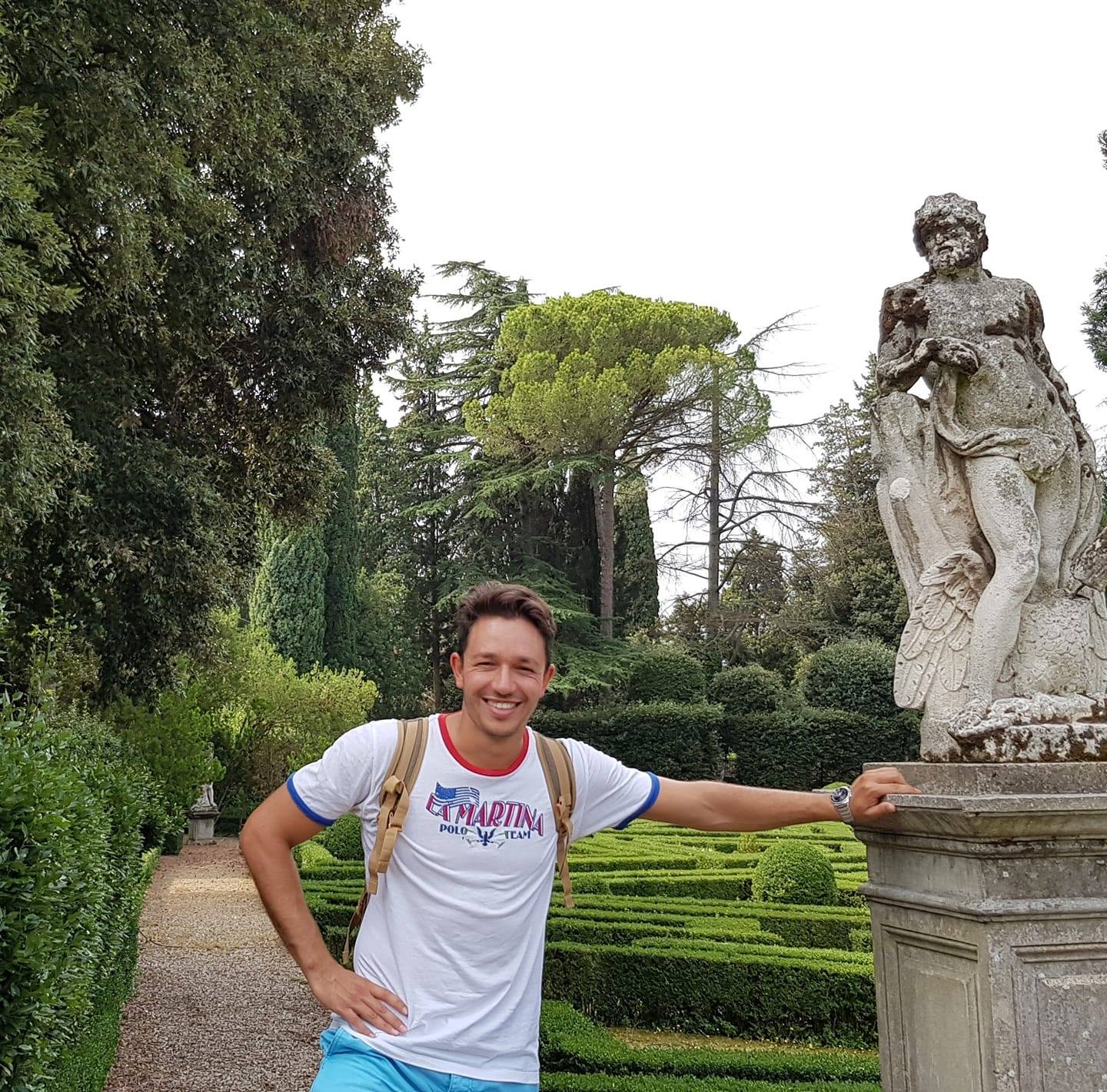
I would condensate my belief about education into the famous “never stop learning since life never stops teaching”. Therefore, I consider education as an ongoing journey throughout my life and career.
After my high school, which was more focused towards a humanistic and foreign language majors, I decided to study International Relations at the University of Bologna. I have to admit that I have always been the type of student that could get away with a decent grade without putting too many efforts. Probably, due to my immaturity, I kept doing this during my bachelor, sometimes with some impressive sprints in order to avoid getting behind. I graduated at the first possible session with an average grade. To be honest, I was more focused into my basketball career than my studies during my bachelor.

This all changed during my first master at University of Bologna, where I decided to continue with International Relations. However, during my master I faced a cross-road: trying to become a basketball coach or really committing to my studies and build a career around it. Fortunately, I opted for the latter, which came together with a new approach to studying. Now I wanted to get the maximum grade, and this new mindset changed the way I approached studying. I underestimated how hard it would be switching from passing the exam towards getting the maximum. But after challenging myself with this, I made it. I terminated my master with the maximum grade, after spending 4 months abroad for my research thesis in Colombia, where I was awarded a scholarship from the University of Bologna. I spent this 4 month-period in Bogotá, the capital city of Colombia, collecting sources from the Colombian Foreign Affairs Ministry, and interviewing officials and politicians from the United Nations and Colombia who were involved with the Colombian government at the time of the first negotiation between President Pastrana and the FARC guerrillas.
At the same time, the Colombian government, a staunch US ally in Latin America, was also negotiation an all-encompassing plan to fight illicit drugs and foster development in Colombia. My thesis was exactly about how this relationship, between the US and Colombian governments, evolved over time up to the envisage of this plan, called “Plan Colombia” (apparently, creative names were not required).
I finished my first master’s degree in International Relations getting what I wanted, such as an experience abroad and the maximum final grade. My study career in International Relations was extremely interesting and interdisciplinary, with exams given in 3 different languages (Italian, English and even a few in Spanish). The major areas of my studies were international law and economics, political science, sociology, international affairs and strategy, contemporary history, with a focus on the Latin America and African areas.
After this rich and fascinating path, which lasted almost 7 years, I realized that I wanted to combine it with a master in Management or Business abroad. My mentor (more on that later in the gratitude section) advised me on pursuing this study path because it could have broadened my career possibilities in both public and private organizations. I would have loved to study in the UK, but I couldn’t afford it. Therefore, the Netherlands, with its broad offer of English-taught programs and very high-quality education institutions, proved to be a great choice. I was admitted to the University of Groningen, where I had to do an extra year of studies (called pre-master, where you study the core subjects of the bachelor’s equivalent of your master) before being directly enrolled in the Master of Science in Business Administration, where I chose the Strategic Innovation Management track.
I had to adapt to a new way of studying (more time-paced, collaborative, intense) and new subjects, namely statistics, organizational theory, business ethics, entrepreneurship, leadership, strategic management and several courses exploring the interplay between innovation and management. I challenged myself even more than during my master, and I was immensely grateful to achieve the cum laude distinction as my master’s grade.
After 8+ years at the university, with one bachelor’s and two masters’, it was finally time to get to a full-time job. Even though I always got part-time or side jobs during my entire university career (at the end, I needed the money!).
However, after starting to work in technical industries, I realized that, in order to get the most complete education background possible, it would be fantastic to get a STEM degree. At the end, I did a bit of math and statistics during my studies, but not as intensively as in a STEM course. This is now one of my dreams and next goals, and it would certainly benefit me from the professional side as well. In the end, if life never stops teaching, why should I stop learning?


At some point I got it clear: I wanted to pursue my career abroad, conscious of the challenges that I would have faced. I wanted to broaden my horizon and not feel forced to accept any compromise on that. In fact, your job shapes your life, since you have to organize your life around your job. After my sides job in Italy as basketball coach during my university, my first professional experience abroad occurred in the Netherlands, at Bollegraaf Recycling Machinery. In the summer of 2019, between my Pre-Master and Master program at the University of Groningen, I did an internship at the company. Thereafter, I continued for the rest of the academic year on a part-time basis. My major tasks involved market research on the waste recycling markets in some specific target countries and sales analysis, where I could deeply improve my Microsoft Excel skills. It was my very first experience abroad, and Bollegraaf, a mid-sized company very well known for the quality of its balers and other recycling plants, was a very good experience to step in into real “adulthood”.
After Bollegraaf, as soon as I finished my master, I found my first full-time professional job at another Dutch mid-sized company, EuroDev, and it proved to be an excellent experience for kickstarting my career. EuroDev I was assigned to coordinate all the business development activities of four small and medium sized American companies in Europe. My tasks involved a variety of sales and key account management activities, with the support of a team of inside sales. All the companies I was assigned to were in technical fields and they manufactured in the U.S.

This almost 3 years period led me to understand the most important players and dynamics in several markets, mainly automotive, food processing, chemical, plastics, optics and electronics and HVAC industries. At the end of my term at EuroDev, I visited 58 different companies, 12 trade shows (among which 6 as exhibitors) and 16 different countries (including the U.S. four times). All of this notwithstanding the covid-restrictions in 2021, which made travelling pretty complicated. Therefore, it is not hard to imagine how intensive and interesting this job was, and I will always be very grateful to EuroDev for giving me so many responsibilities at the beginning of my career, as well as to all my North American partners that I represent in EuroDev, especially B&P Littleford, Cool Clean Technologies, Triangle Manufacturing and Surgically Clean Air. I was generally reporting to the VP/Head of Sales in these companies, and I got to learn a lot from many of them. All in all, I would condensate the 3 major learning experiences at EuroDev in the following points:
EuroDev helped realizing what I needed next in order to keep improving my skills. I came to the conclusion that, since dealing with technical and complex products or solutions was great for my career’s development, I should have moved to a German multinational. Fortunately, this happened in July 2023, when I moved to Jenoptik, in Jena, Germany. Jenoptik is so far my company, even if I moved internally in January 2025, from the Semiconductor & Advanced Manufacturing business unit to Trioptics, a subsidiary part of the Optical Test & Measurement business unit. Trioptics, is based near Hamburg and as Key Account Manager for Image Quality Testing, I can focus on two aspects I really care for keep developing my career: next-level technical sales (since we manufacture machines for optical metrology) and international business development (since we have a worldwide presence, with several subsidiaries and distributors in Europe, Asia, Middle East and North America).

I want to dedicate a few lines to some people who greatly contributed to make me the person I am today.
I want to start with Bruno Guandalini, who is still my mentor. Bruno is now retired after serving almost his entire career as a high-ranked official at the United Nations, with the task of coordinating several UN agencies in several Latin America countries. His experience and culture are even hard to describe, as he was dealing on a daily basis with very influent people and government officials (prime ministers and presidents) to manage development projects. Bruno earned an MBA from the Columbia University, and he lived in many different countries, both before joining the United Nations (where he worked at Olivetti and Exxon in Canda and U.S.), as well as during his 20+ years mandate. Bruno spent a lot of time during my first master’s in international relations at the University of Bologna in listening and trying to understand me. It was clear to me that I wanted to continue my studies abroad, but I had no idea on what. He encouraged me to pursue a master’s in management or something related to that, and he has always given me the best advise on every choice I have made so far. What I owe to Bruno is just uncountable, and it’s fair to say that he had a tremendous impact on my life and my way of thinking.
From the professional side, I owe a lot of gratitude to Tim Vaesen, who had the courage to hire me and give me some many responsibilities from day one at EuroDev.
I also want to thank the company owners Edward Nijland and Mark de Vries, as well as my last manager José Prieto. Among my American partners I had the pleasure to work with, I want to mention Robert Lytkowski, Jon Wiktrom, Austin Flanders and Mike Booth.
Then, some of my professors at the University. First of all, my supervisors for my two masters’ thesis, Francesco N. Moro (University of Bologna) and Pere Arque-Castells (University of Groningen). Then, some professors whose lectures were so interesting and captivating, which broaden my horizons: Thijs Broekhuizen, Angelo Panebianco, Loris Zanatta and Arrigo Pallotti.
Then, some people who gave me important opportunities (and guidance) as basketball coach, such as Stefano Tedeschi, Umberto Arletti and Giorgio Tampieri. Finally, my family, who never created me any impediment and allowed me to take all the choices I have made
